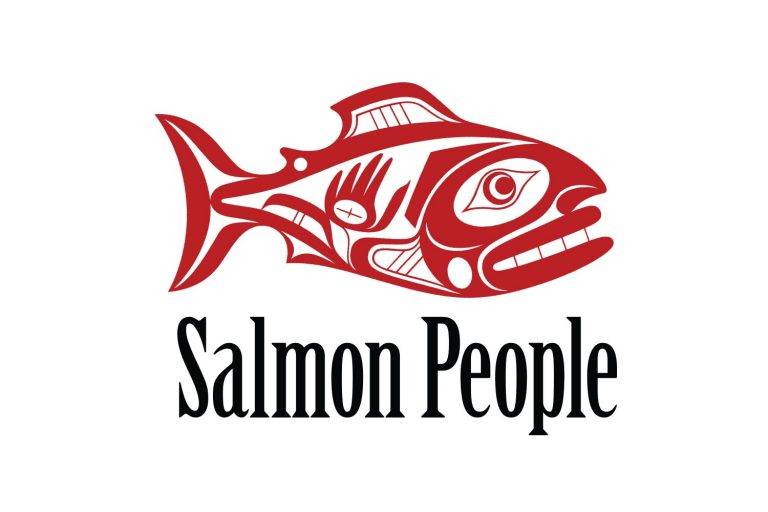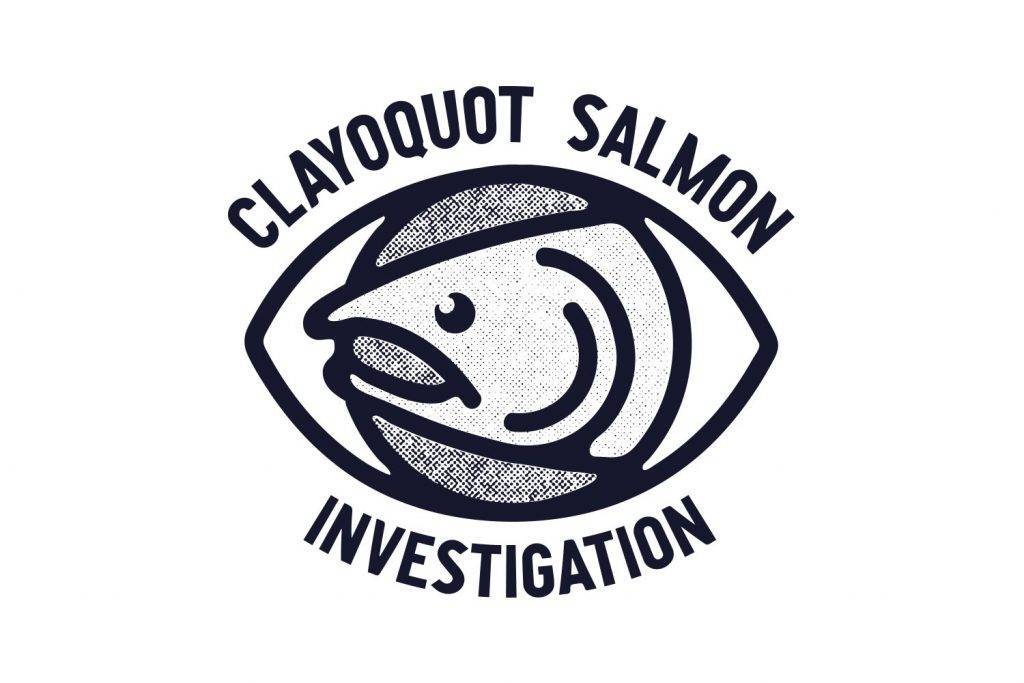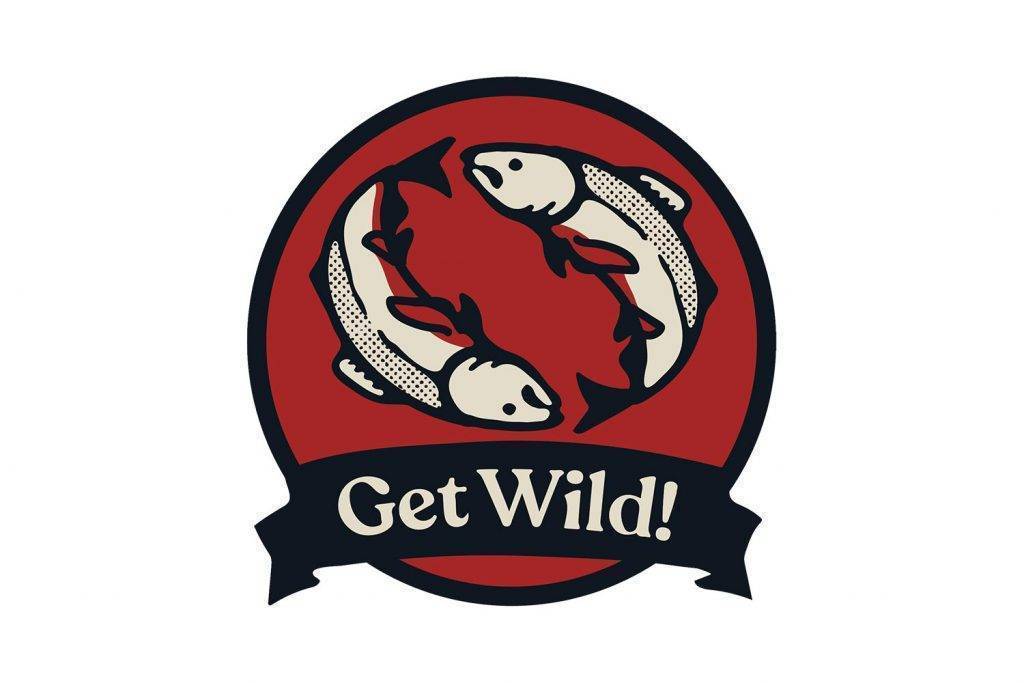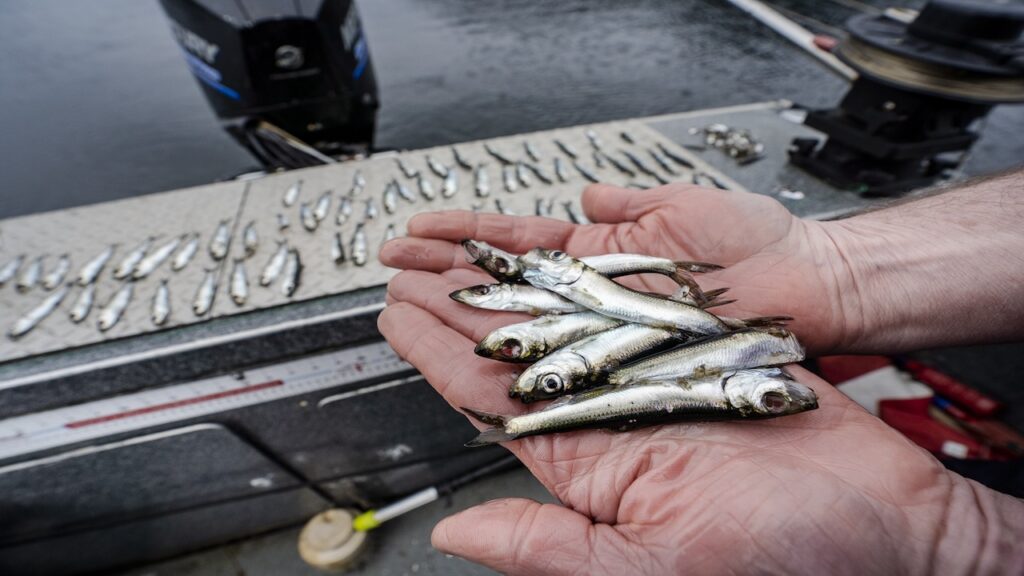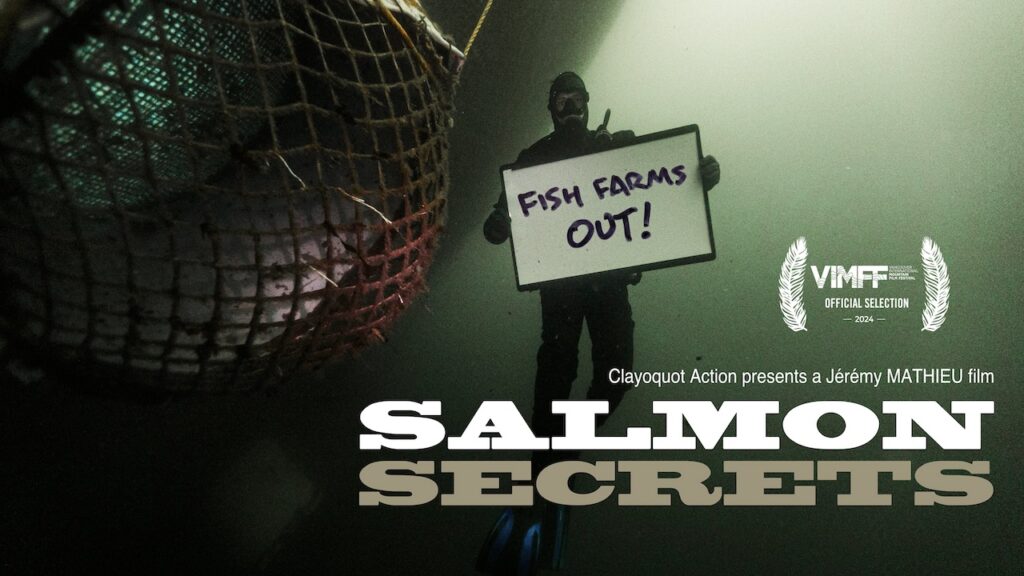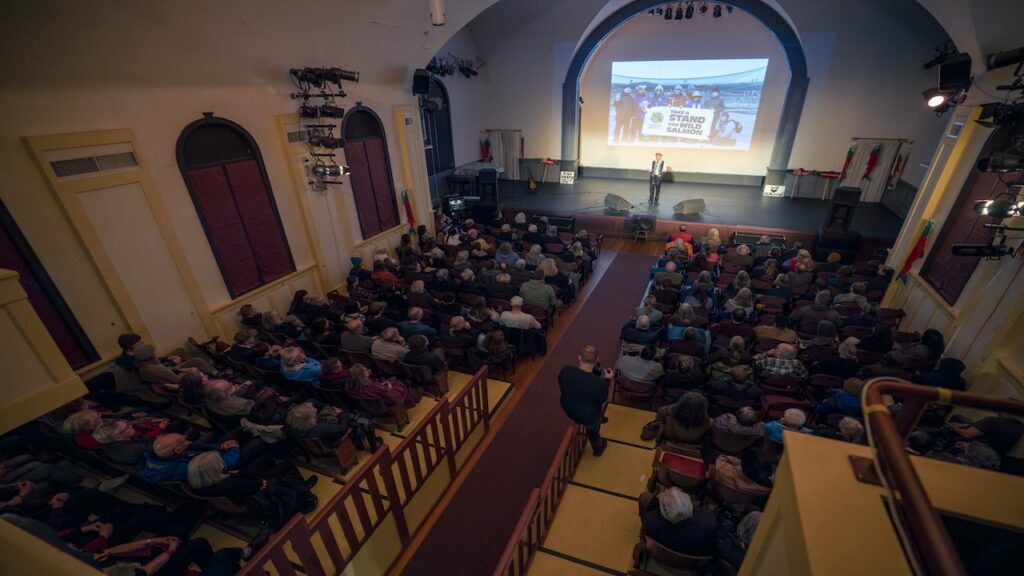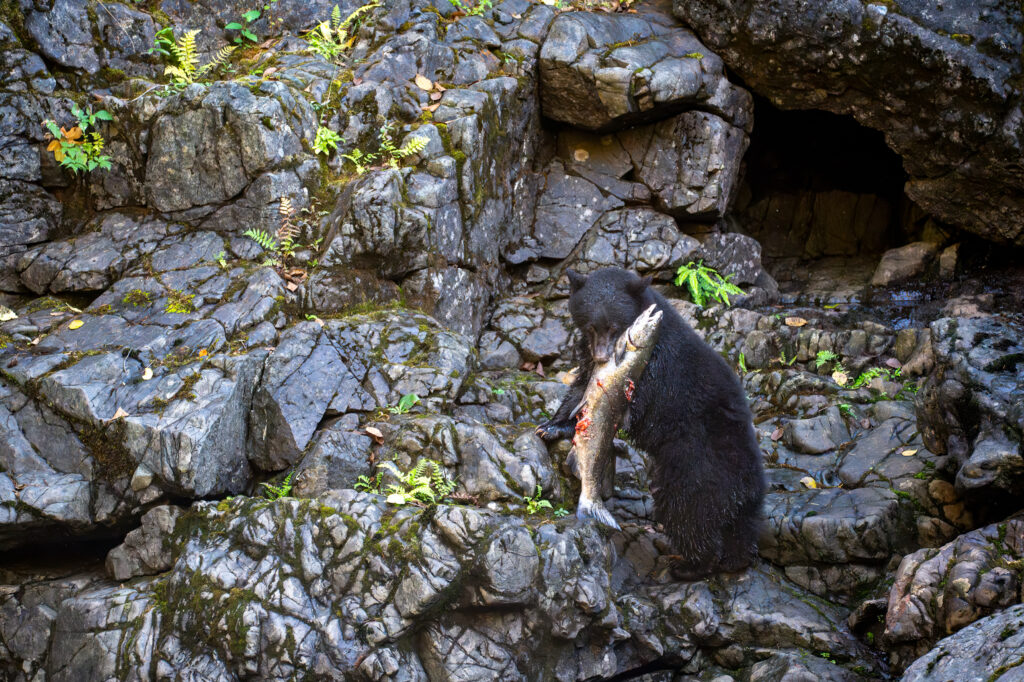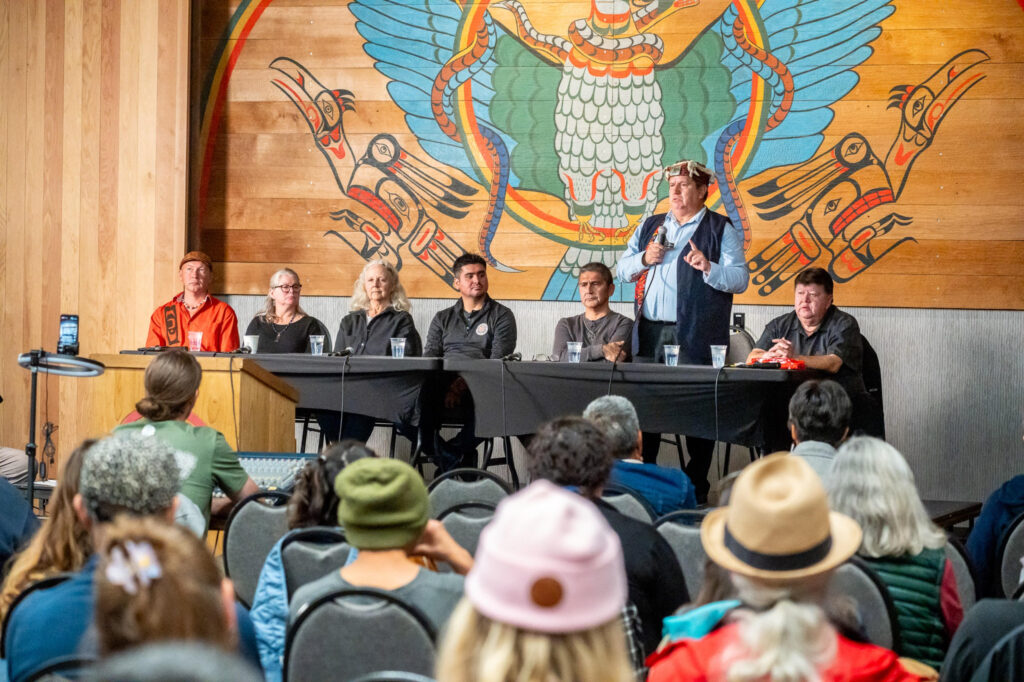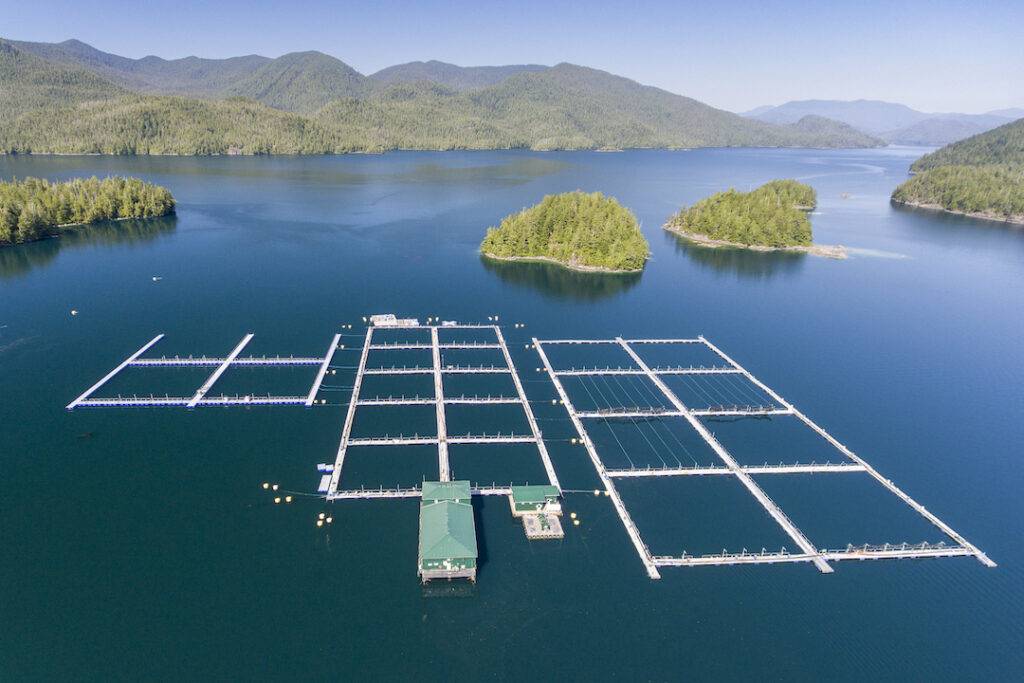by Dan Lewis with Alexandra Morton
Every fall for the past quarter century, I’ve eagerly anticipated the return of Chum salmon spawners to a handful of tiny creeks in the Wah-Nah-Jus/Hilth-hoo-is Tribal Park on Meares Island near Tofino. It used to be quite an affair — eagles wheeling, seagulls screeching, and bears cruising the estuary, everyone looking to fatten up for winter. A typical year would see two or three hundred spawners in each creek.
Now it is mostly quiet when I paddle up there. The eagles look glum, and the waters are silent except for the occasional splash of a spawner. The bear scats contain berries rather than salmon. But I keep going, because I see every single fish as sacred.
Wild salmon populations in BC are in freefall. Since the early 1990s, Pacific salmon stocks have declined by up to 93%. The 2020 season was the worst on record for many salmon stocks. For 2021, DFO predicted runs would be “low and similar to 2020.”
While there has been much debate about the cause of this collapse, the detrimental role played by open-net pen salmon farms is obvious, and research from Canada’s leading universities makes it undeniable, certainly to anyone outside of industry and government. The climate crisis, habitat loss, overfishing, urbanization, and other impacts are no doubt playing a role. But the weight of evidence shows that salmon farms harm wild salmon by transferring dangerously high doses of pathogens and sea lice from farmed to wild salmon. Tiny juvenile wild salmon with more than two or three lice on them are not going to survive their ocean passage – they are dead fish swimming.
This is why the federal government prohibited the transfer of farmed salmon into the migration route of the Fraser sockeye, and signed an agreement with First Nations in the Broughton Archipelago to allow closure of salmon farms. They also promised in 2019 to remove all salmon farms from BC waters by 2025. Washington State banned open-net pen Atlantic salmon farms in 2017, and California, Oregon and Alaska never permitted salmon farms. British Columbia is now the only jurisdiction on the west coast of North America still allowing salmon farms.
Mandate letter: transition by 2025
Following the recent federal election, a new Fisheries Minister was appointed, Joyce Murray from Vancouver. Her mandate letter, issued in December, instructs her to “Continue to work with the province of British Columbia and Indigenous communities on a responsible plan to transition from open net-pen salmon farming in coastal British Columbia waters by 2025.”
That transition is already well underway in the Broughton Archipelago, as a result of 2018 talks between the provincial government and First Nations. Nine farms have already been closed, with the final seven farms subject to further review by First Nations. In the Discovery Islands, 19 fish farm licenses which expired in December 2020 were not renewed. As well, the Gwawaenuk First Nation has ordered closure of two more farms in their territory.
Meanwhile, there is a very important milestone coming up for all who care about wild salmon. All federal salmon farm licenses in BC are set to expire in the summer of 2022, less than six months away. Before the federal election, former Parliamentary Secretary for the Department of Fisheries and Oceans (DFO) Terry Beech issued a “what we heard” report based on the consultation conducted early in 2021. In the introduction, Beech states, “A large percentage of tenure decisions will need to be made by June 2022.”
Operators still applying (and being approved) to expand
Enter the industry. How are they preparing for the decision as to whether or not they can continue operating in the ocean? They are actually applying to expand existing operations. There are currently twelve open-net pen salmon farm expansion applications before DFO. These applications are being reviewed and approved by bureaucrats who apparently have yet to be informed that DFO is planning to remove salmon farms from BC waters in the next three years.
Five of these applications are by Cermaq for their Clayoquot Sound operations. Three of those are to expand the size and/or number of pens, without an increase in production levels (really? what kind of business would expand facilities if they weren’t intending to increase production?). Two of these have already been approved.
Cermaq is also applying to increase production by 50% at two of their Clayoquot facilities. This would be the equivalent of adding a whole new fish farm in Clayoquot Sound. The last time Cermaq tried that was in 2015. One of the farms they applied for was rejected. The other was occupied by members of Ahousaht First Nation until their chiefs ordered Cermaq to tow it away.
The other seven applications are located in Nootka Sound, the central coast near Klemtu, and the Broughton Archipelago. The one in Nootka has been approved.
The federal government made a historic $647 million investment in wild Pacific salmon in 2021. The decisions to close salmon farms on the Fraser River sockeye migration route, and to close all open-net pen salmon farms in BC by 2025, tell us that the highest levels of government accept that removing salmon farms is required to protect wild salmon. And yet, at the bureaucratic level DFO is approving salmon farm expansions! This is a collapse of government’s control of its own bureaucracy.
Salmon are the very essence of resilience. They have been returning to this coast for millennia, shaping the landscape, human cultures, and wildlife. Given a chance, their populations will rebound and continue to provide abundance for everyone – they even help stabilize our climate by feeding the trees. After all salmon have done for us, we owe it to them to give them that chance, by removing fish farms from BC waters.
The DFO bureaucracy must align with its minister and the Prime Minister’s Mandate Letter to remove salmon farms by 2025.
Please send your message to Fisheries Minister Joyce Murray—it only takes seconds!
Dan Lewis is executive director of Clayoquot Action in Tofino. Alexandra Morton is science advisor for the ‘Namgis First Nation..
Previously published in Watershed Sentinel.
